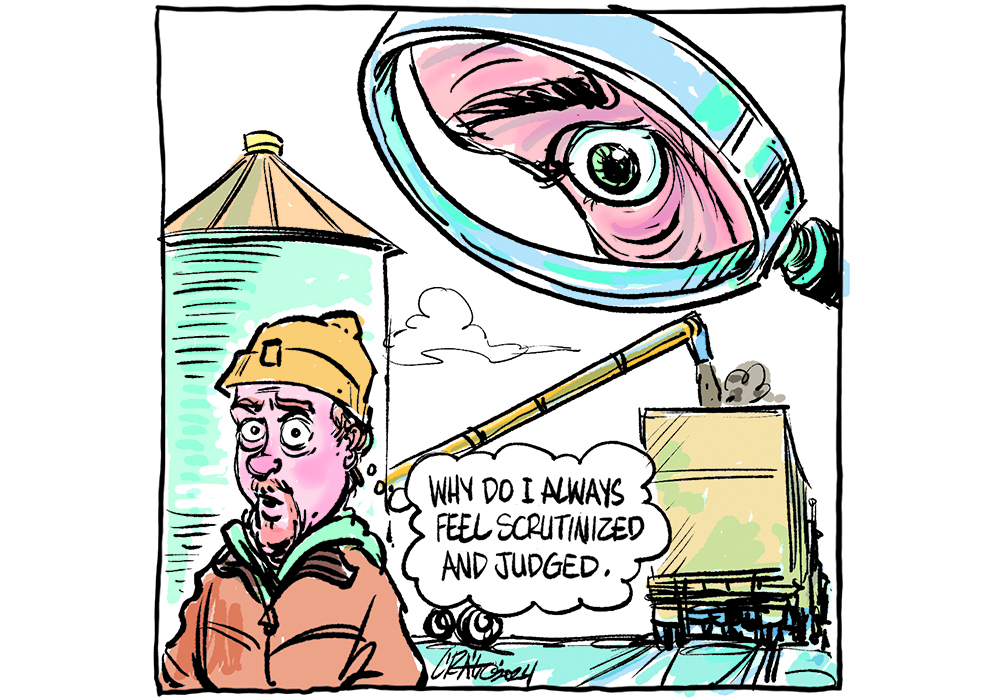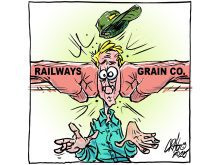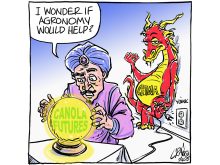Those of us with a front-row view of agriculture in this country are shaking our heads over findings of the latest survey on consumer trust in the food system.
When the Canadian Centre for Food Integrity recently canvassed 2,800 Canadians, it uncovered a sharp drop in public confidence. While 31 per cent said they believe the food system is on the right track, for the first time almost as many (29 per cent) believe it is headed in the wrong direction.
“This research makes it clear that public trust in Canada’s food system is facing some challenges,” said Ashley Bruner, director of research and stakeholder engagement at the centre. “With public sentiment becoming increasingly polarized, indifference has emerged as a threat to public trust. Negativity and cynicism are gaining ground faster than both positive and neutral views, underscoring the urgent need for the industry to engage more meaningfully with Canadians.”
Read Also

Invigor Gold variety viewed as threat to condiment mustard
Invigor Gold, the canola-quality mustard developed by BASF, is on a collision course with Canada’s condiment mustard industry. It’s difficult to see how the two can co-exist.
The number of Canadians who held a positive view of Canada’s food system declined by seven per cent to 45 per cent. Negative impressions rose from 11 per cent to 18 per cent. And trust is tracking downward in the major benchmarks used to gauge public perceptions, including environmental sustainability and regulatory oversight.
While cost of food remains top of mind for consumers, with 51 per cent of respondents naming it as their biggest concern, it is less worrisome than it was in 2023.
This decline in confidence is despite the reality that farmers and the industry have made tremendous gains in sustainability and the sector continues to raise the bar relative to global competition.
Canada’s food safety and regulatory system is recognized as one of the best in the world. Consumers also pay a relatively small proportion of their annual income on food, which speaks to the system’s efficiency.
Based on the facts, the Canadian food system is worthy of the public’s trust.
What gives?
First, agriculture and food aren’t alone in this. Mistrust is a defining issue of our times.
There are elements in our society, some of them supported by foreign interests, whose sole purpose is to spread misinformation and create uncertainty and mistrust in government, business and the media.
And when people don’t know who to trust, they stop trusting, period.
At the societal level, we would all benefit from developing better critical analysis skills, looking to more than one source for our information, and peering through the rhetoric and slogans to understand whether there is any substance behind them.
Secondly, while transparency is generally good, it also amplifies the impact when problems occur. The fact that these incidents are newsworthy makes them unusual, rather than the norm. But rather than inspire confidence, the publicity around issues or missteps tends to erode it.
This in no way suggests that the industry should hide from public scrutiny, only that it must emphasize the full context when problems do arise. If anything, agriculture needs to become more open to the questions the public wants to ask, rather than focused on the answers it wants to give.
Thirdly, there is a risk that campaigns designed to inspire trust will backfire. When someone relentlessly trying to sell you on something says, “trust me,” do you?
Agriculture doesn’t need to tell the public that it’s trustworthy or that it’s doing a good job. It just needs to tell its story.
Karen Briere, Bruce Dyck, Barb Glen, Michael Robin, Robin Booker and Laura Rance collaborate in the writing of Western Producer editorials.















